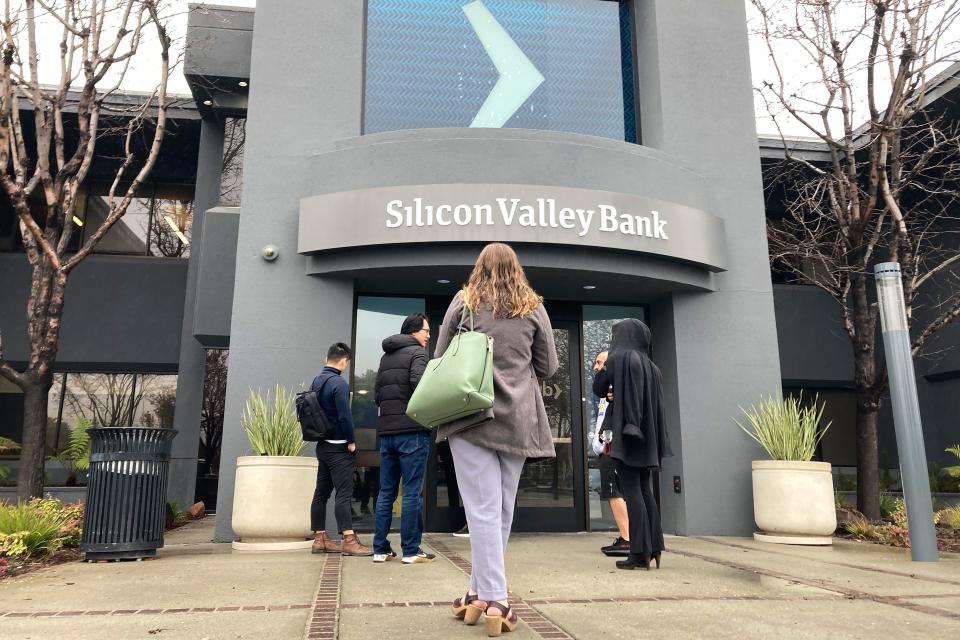The Silicon Valley Bank collapse offers these lessons to all of us | Opinion
- Oops!Something went wrong.Please try again later.
I felt a familiar pang of anxiety as I read the news: Here we go again.
I never had any dealings with the now-defunct Silicon Valley Bank, nor did I hold any shares in Signature Bank. But memories of the 2008 financial crisis came flooding back. Back then, what seemed like isolated events triggered a chain reaction that ultimately plunged the country into a painful recession.
Will history repeat itself? Some experts claim that this time is different, and I pray they're right. There's already so much pain and suffering in the world. We don't need any more of it.
In the meantime, there is a lesson that we can learn, a lesson that can improve our lives.
The founder of the Chassidic movement, Rabbi Israel Baal Shem Tov ("the master of a good name"), taught that the world is full of teachable moments. Everything we see or hear can help us become better people and more attuned to our divine mission.
Ripple effect: How Silicon Valley Bank collapse is affecting other US banks
More:Silicon Valley Bank collapse explained in graphics
So what can we learn from all of this?
Financial crises often occur due to a bursting bubble. In 2008, it was the housing bubble. Recently, the crypto bubble burst, causing losses of billions of dollars. And now, the high-tech bubble may be on the verge of exploding.
A bubble is simply another way of saying, "everyone has it, so I want it too." The price keeps rising as everyone rushes to grab a piece of the pie. Until ... poof! It's all gone.

The opposite of a bubble is making intelligent investments: investing in long-term value while ignoring the "everyone's doing it" mentality. In the long run, those who know how to make intelligent investments will be more successful.
Let's apply this idea to our daily lives.
Every day, we're blessed with a valuable "capital": our time, energy and focus. And every day, we make investment choices about how to spend them.
But we need to ask ourselves: are these intelligent investments? Are we investing in long-term things that hold real value, or are we following the latest trendy bubble?
Here's a classic story that illustrates this idea:
Sir Moses Montefiore was a very wealthy man. When asked for his worth, he pondered for a moment and then named a figure.
"This can't be right," the questioner exclaimed. "Everyone knows you make much more than that!"
Sir Moses smiled and replied, "You didn't ask me how much I make, but what my worth is. So I told you the total amount of money I gave to charity. That's my real worth because no one can ever take it away from me."
There are countless investment-worthy options available to us: the charity we give, the time we volunteer, our contribution to the community, our relationships with our loved ones, and our service to God. Investing in them will yield returns of happiness and satisfaction, both in the long and short term.
Dear God, may the economy improve, may those affected by the crisis recover and thrive again, and may we be blessed with the wisdom to make the right choices.
Rabbi Mendy Kaminker is the Rabbi at Chabad of Hackensack. He welcomes your comments and questions at Rabbi@ChabadHackensack.com

This article originally appeared on NorthJersey.com: Silicon Valley Bank collapse: What we can learn


